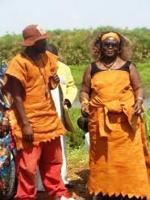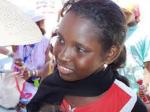Machakos Town Schools and colleges
If you are searching for Machakos Town Schools and colleges, you’ve come to the best place. Machakos is known in Kenya as hub of Akamba education and for that matter, we are going to show you all the best school and colleges in this area.
Primary schools in Machakos include:-
Machakos Primary, St. Mary's Boys and girls, Muthini Primary, Township Muslim Primary School, St. Teresas primary, Machakos academy, ABC Girls academy, one hill academy premese academy, lukenya academy, makutano academy, Mumbuni primary, baptist primary, ABC girls academy and Katoloni.
High schools include:-
Machakos Girls, Machakos School, St. Monica, St. Valentine girls, Mumbuni High School and Katoloni among others.
Tertiary education is still growing with new colleges like:-
Machakos Teachers Training college, Machakos Institute of Technology, copperbelt college, Century Park College, Scott Theological University and Computers for school Kenya.
Students who successfully complete the diploma in "Computers for School Kenya" are granted credits towards BIT and BSc.(Computer Science) courses at Maside Muliro University of Science and Technology (MMUST).
Century Park College is located at the far end of Makueni Road in Machakos and offers an extensive Early Childhood Education and Development, Information Technology, P1 Primary School Teacher, Catering and Hospitality, Business Management, Accounting, Guidance and Counseling, and Business Administration programs, including short-term management courses.
CPC offers a cyber cafe and instruction from an illustrious and multicultural faculty.
Machakos is one of the towns known to cater for the physically handicapped and impaired. Schools like the APDK for the physically handicapped, school for the deaf, school for the blind and the special unit for the mentally handicapped (in TMPS) have gone a long way in providing education for these special children.
There are a number of schools in this area and Kenya as a whole, including primary, secondary and international schools. They are instrumental to the country's education system..
The United Republic of Kenya realizes that quality education is the pillar of national development, for it is through education that the nation obtains skilled manpower to serve in various sector in the nation’s economy.
It is through quality education Kenya will be able to create a strong and competitive economy which can effectively cope with the challenges of development and which can also easily and confidently adapt to the changing market and technological conditions in the region and global economy.
The schools in Kenya were fraught with problems, with students not being able to afford the fees, and teachers being underpaid
Since the abolition of school fees in 2003, things have taken a turn for the relatively better.
More children are getting education, although the schools are overcrowded and understaffed. There are serious problems with funds as well, but the Kenyan government is working hard to put things right. .
Work is underway to devise a national fee structure, to improve training facilities for teachers, and to achieve gender parity in the imparting of education. Work is also going on to improve the overall. secondary education structure in Kenya.
Recent Articles
-
Garam Masala Appetizers ,How to Make Garam Masala,Kenya Cuisines
Sep 21, 14 03:38 PM
Garam Masala Appetizers are originally Indian food but of recent, many Kenyans use it. Therefore, on this site, we will guide you on how to make it easily. -
The Details of the Baruuli-Banyara People and their Culture in Uganda
Sep 03, 14 12:32 AM
The Baruuli-Banyala are a people of Central Uganda who generally live near the Nile River-Lake Kyoga basin. -
Guide to Nubi People and their Culture in Kenya and Uganda
Sep 03, 14 12:24 AM
The Nubians consist of seven non-Arab Muslim tribes which originated in the Nubia region, an area between Aswan in southern







New! Comments
Have your say about what you just read! Leave me a comment in the box below.